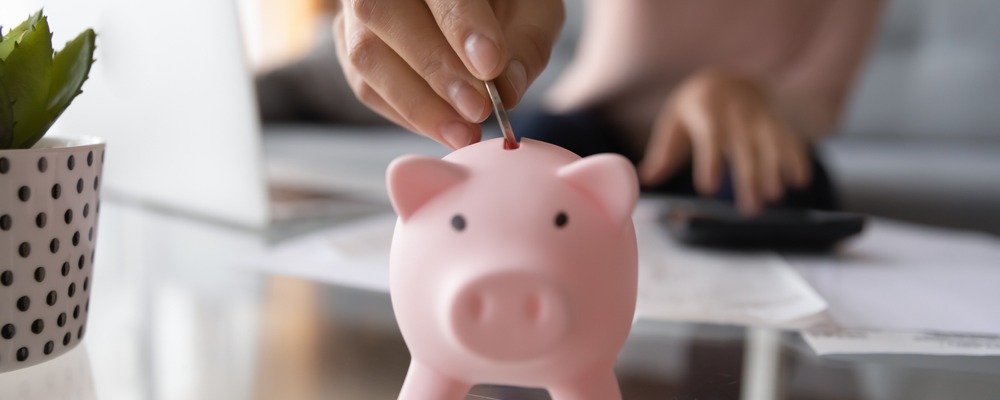
Most prospective buyers wonder about the best way to save for a house. So, how much should you put away each month? And is a standard savings account enough? Are there schemes that can help?
With so many questions to consider, it’s not always clear where to start. Fortunately, with careful planning, saving for a home can be more manageable than it seems. While there is no one-size-fits-all approach, this guide provides practical tips to help you get started and feel more confident about reaching your savings goals.
Why is saving for a deposit important?
Saving for a deposit is one of the most important steps when buying a home. A larger deposit means you’ll need to borrow less, which can lower your monthly mortgage payments. With living costs rising by 3.6% as of June 2025, keeping your loan amount smaller can make it easier to manage your budget and save you money in the long run.
How much should your deposit be?
In the UK, most mortgage lenders expect you to put down a deposit of around 5-10% of the property’s value. The exact amount depends on the lender and your circumstances, but a bigger deposit can help you access better mortgage rates.
First time buyer deposits
Most mortgage lenders prefer first time buyers to have a deposit of 10% or more, as it lowers their lending risk and can show that the buyer is financially responsible.
According to UK Finance, these are the average first time buyer deposits across England:
|
Region |
Deposit |
Percentage |
|
EastAnglia |
£66,380.79 |
24.2% |
|
EastMidlands |
£47,765.68 |
20.8% |
|
GreaterLondon |
£151,731.11 |
29.6% |
|
North England |
£30,679.26 |
18.6% |
|
North West |
£42,863.74 |
20.2% |
|
SouthEast |
£80,471.88 |
£23.3% |
|
South West |
£65,170.91 |
23.6% |
|
West Midlands |
£49,511.89 |
21% |
|
Yorkshire and Humber |
£39,511.25 |
20.2% |
-
Northern Ireland - £39,034.50
-
Scotland - £30,786.97
-
Wales – £24,475.91
Tips to help you save for a deposit
Saving for a deposit can feel daunting, but breaking it down into clear, practical steps can make it more achievable.
Set up automatic savings
You may want to set up automatic transfers to a dedicated savings account each month. This ‘pay yourself first’ approach can help ensure your deposit fund grows consistently. Even starting with £200-£300 per month can build substantial savings over time.
Cut back on non-essentials
Take a close look at your current spending patterns to identify areas where you could cut back. This might include subscription services, dining out or impulse purchases that could be reduced without significantly impacting your lifestyle.
For non-essential purchases over £50, try the ‘24-hour rule’, where you wait a full day before buying. This pause gives you time to decide if you truly want or need the item, helping you avoid unnecessary spending.
Use the 50/30/20 rule
Consider allocating 50% of income to ‘needs’, 30% to ‘wants’ and 20% to savings and debt repayment.
Keep track of your spending
Use banking apps or spreadsheets to monitor your expenses and identify unnecessary purchases.
Consider additional income sources
Look into freelancing skills you already have, selling items online or taking on part-time work. Popular options include food delivery, tutoring, virtual assistant work or turning hobbies into income.
Government schemes that can help boost your savings
Building your deposit through personal savings is crucial, but you don't have to do it alone. The good news is that there are several government-backed schemes designed to boost your savings or reduce the amount that first time buyers need to borrow.
Lifetime Individual Savings Account (LISA)
A Lifetime ISA (LISA) is a tax-free savings account that gives you a 25% bonus if used for retirement or to buy a first home. You can contribute up to £4,000 per year and the government will add a bonus of 25% - up to a maximum of £1,000 a year.
First Homes scheme
The First Homes scheme offers eligible buyers in England the chance to purchase a new-build property at a discount of 30% to 50% off its market value. It's mainly aimed at first-time buyers and key workers, helping them secure a quality home in their local area at a more affordable price.
Shared Ownership scheme
Shared Ownership lets you buy a share of a property, usually between 10% and 75%. You’ll be required to pay rent on the remaining portion, which is usually owned by a housing association, developer or local authority. This lowers the deposit and mortgage you need. You can usually buy more shares over time until you own the property outright.
Accounts and tools that can help you save
Choosing the right savings account can make a real difference to how quickly your deposit fund grows.
Cash ISAs vs. Stocks and Shares ISAs
A Cash ISA is a tax-free savings account where your money earns interest at a fixed or variable rate. It's a low-risk option, as your savings won't be affected by changes in the stock market.
A Stocks & Shares ISA is an investment account where your money is used to buy shares, bonds or funds. Any returns are free from UK income tax and capital gains tax. This type of ISA can offer higher growth potential than a Cash ISA, but the value of your investments can go up or down depending on market performance.
High-interest savings accounts
A high-interest savings account is a place to keep your money where it can grow faster than in a standard savings account. The interest you earn is shown as an AER (Annual Equivalent Rate). The higher the AER, the more interest you'll earn over a year.
There are different types,
-
Regular savings accounts, where you pay in a set amount each month
-
Fixed-rate bonds, where your money is locked in for a set time at a fixed rate
-
Easy-access accounts, where you can take your money out whenever you need it.
Budgeting apps
Budgeting apps can help you track your spending and grow your savings automatically. Many include features such as rounding up purchases to the nearest pound and saving the difference, as well as categorising your spending so you can see where your money goes and spot areas to cut back.
Ready to buy your first home? Explore our range of new build homes across the UK, designed with modern, energy-efficient features to help keep your bills low from day one.
Contact our Sales Advisers to start your homebuying journey today.

